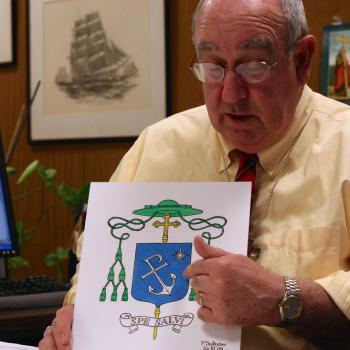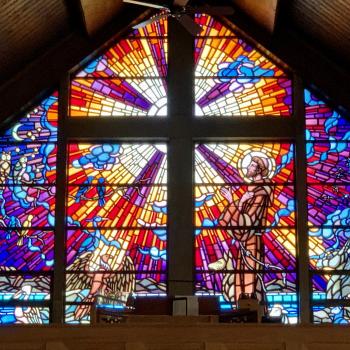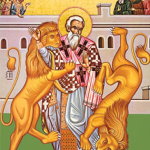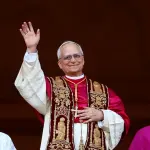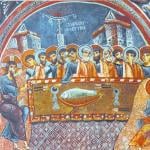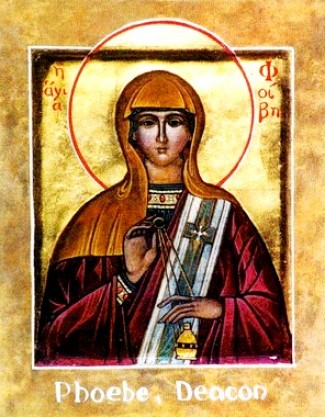
Since the news of a new head of the CDF has prompted renewed discussion about women deacons, Deacon Bill Ditewig takes a closer look at some of the latest scholarship on the subject:
The new Prefect of the Congregation for the Doctrine of the Faith (CDF), now-Archbishop (soon-to-be Cardinal) Gerhard Ludwig Mueller has written on the diaconate and priesthood, as well as participating as a theologian on the International Theological Commission (ITC), which developed a paper on the diaconate. Ten years ago, he was interviewed on this question as part of that effort, and that is available here. I would observe, and will detail below, that much has happened SINCE that interview which would lead me to question whether he would still hold some of the same views today.
I bring all this up because the mention of Mueller’s decade-old interview sparked quite a debate over on Deacon Greg Kandra’s Facebook page, and some points were made there that I think need to be addressed. One of the comments made was the following:
“The all-male diaconate definitively and historically emerges from the ministry of the apostles in Acts. Just as Jesus did with the Twelve, the Apostles do with the “Seven”–both excluding women. I would suggest reading our new Prefect’s book “Priesthood and Diaconate” as well as Martimort’s “Deaconesses” for the historical context that makes clear that, while the Church ordained “deaconesses” as a separate “order” in the Church, the order of deaconesses was never viewed as a participation in the Sacrament of Holy Orders any more than other orders were (porter, lector, acolyte, etc). While there has been no contemporary clarification that women cannot be deacons (though they obviously *can* be deaconesses if that “order” is ever restored), the history/practice on this point is explicit both in Scripture and Tradition.”
1) The claim is made that an all male diaconate “definitively and historically” is grounded in Acts 6-8 and the selection of the Seven. The commenter later admits that a separate group known as “deaconesses” existed later, although not on a sacramental par with male deacons (more about that later). However, on this first point I’m concerned about the terms “definitively” and “historically,” especially based on a reading of Acts. Scripture alone cannot sustain this claim, since the passage does not explicitly refer to the Seven as “deacons.” Certainly scripture knows of deacons (one need only turn to the letters of Paul and the pastoral epistles to find that evidence), but Luke does not refer to the Seven as deacons. It is later Tradition (at least 200 years later) that begins to refer to Stephen and his “classmates” as the first deacons. (In fact, the only deacon referred to by name in the New Testament is actually Phoebe, who is referred to as deacon — not by the feminine form diakonissa, but by the masculine form diakonos, leading some scholars to suggest that “deacon” has already emerged as the title of a particular office in the ancient Church.) So, I would be very hesitant to attach a “males only” argument simply to the passage from Acts, especially using terms such as “definitively” and “historically.”
2) The fact is, the Church has never spoken “definitively” on the subject of the ordination of women as deacons. The term “definitive” was applied to the question of ordaining women to the PRESBYTERATE by Pope John Paul II in his encyclicalOrdinatio Sacerdotalis, but that is a question distinct from the diaconate. I would also point out that the working document released by the ITC (with Mueller as a member) also agreed that the Church has not yet spoken definitively on the subject, and that “it pertains to the Church’s ministry of discernment” to address the matter.
3) The commenter suggests that people read Mueller’s text on Priesthood and Diaconate as well as Martimort’s workDeaconesses. That’s good advice, but incomplete. First, Martimort was not writing in a vacuum. He was engaged in an extended scholarly debate with Roger Gryson, who took an opposing view of the same historical evidence; so, I would encourage people to read BOTH men and analyze their arguments. Second, this debate took place in the 1970’s, and the historical record has been greatly augmented by more recent research, both in Eastern and Western sources. Simply put, we have more historical data to consider today than those two scholars did.
There’s more at the good deacon’s blog, “Deacons Today: Musings on Diakonia and Diaconate.”







